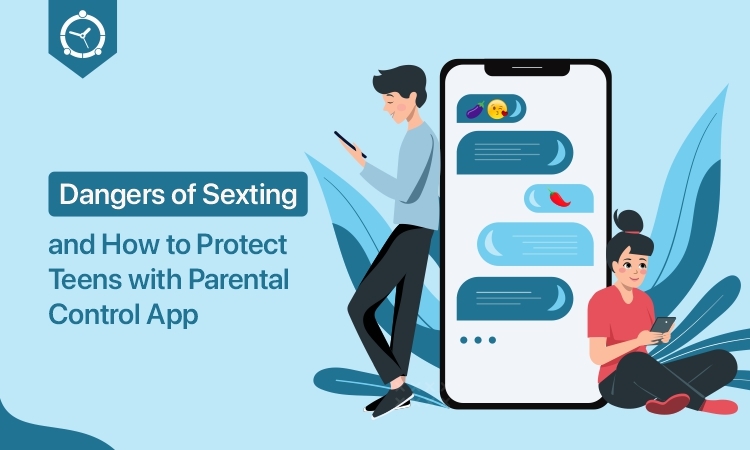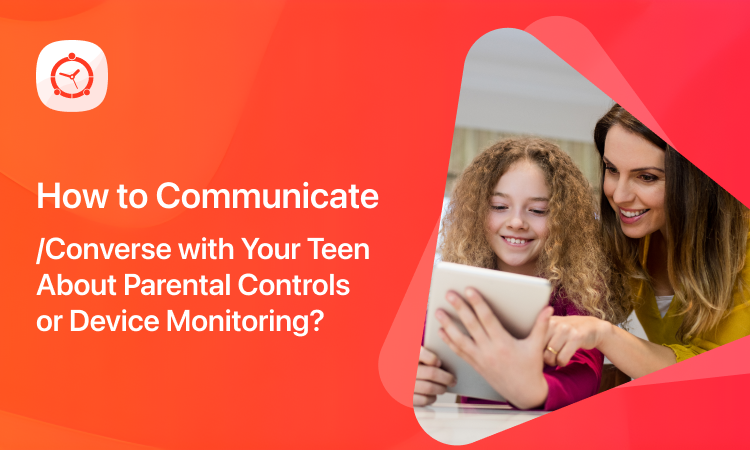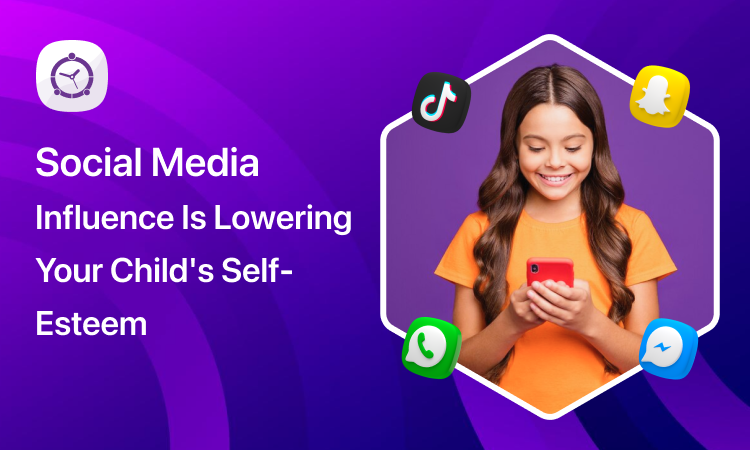
The thought of teens sharing explicit images with strangers is the stuff of nightmares for all parents. So, how exactly can parents prevent their kids from indulging in this dangerous activity called sexting? The answer is simple. They can educate their kids and use a parental control app.
We often hear terrible stories in our social circle of how a teen had been taken advantage of by some predator, and all the stories mention sexting at some point. But what exactly does sexting imply?
What Is Sexting?
Modern-age teens and tweens often resort to sexting to showcase their (romantic) feelings. To that end, they may send sexually explicit written messages and (nude or semi-nude) images/videos. Therefore, everything that points toward sexual activities falls under sexting.
Even though it has numerous negative impacts, sexting continues to spread like wildfire. The consistent rise of this phenomenon has become a leading cause for concern in households with teens and tweens. Many parents use parental control apps to monitor their teen’s online activities. But what makes it so popular?
Why Is Sexting So Popular?
It is becoming increasingly popular predominantly due to the rise in the number of kids who have access to smartphones and the internet. Most modern-day smartphones have high-resolution cameras and an even higher storage capacity. That enables teens to take, upload, and share explicit photos with others by merely pushing a few buttons.
The advent of social media platforms that offer disappearing messages, like Snapchat and Instagram, etc., has only made it worse. Teens sext via these apps because they assume their conversations will vanish automatically. But they don’t realize how easy it is to screenshot a disappearing message or forward it to others. Therefore, sexting often incurs grave repercussions on teens’ lives and futures.
Dangers of Sexting
Though sexting often occurs through mutual consent, it isn’t always the case. Many teens participate in this activity because of several reasons. For example, they may do it out of curiosity, impulse, inclusivity among the cool kids’ club, pressure from the other party, and so on. The worst thing for parents is to learn that compromising photos of their teens are circulating over the internet. Let’s look at the following dangers of sexting and how they impact teens.
- Depression & Anxiety
Teens who participate in this activity under pressure feel anxious and depressed after the fact. The fear of getting exposed in front of family, friends, peers, etc., and the humiliation that may follow also leads to depression.
- Online Grooming
Even teens who indulge in sexting with free will may fall victim to online grooming. There is no shortage of sexual predators on social media platforms. Even people in your close circle may target teens under the pretense of romantic relationships only to groom them and take sexual advantage of them later.
- Extortion & Harassment
Many times, teens become victims of extortion and harassment after sexting. The individuals they sext with use their compromising images/videos to blackmail them for sexual favors. Such horrendous people are online predators since all this occurs via the internet.
- Legal & Ethical Accountability
On the other end of the spectrum, if teens come across sexts sent by their friends or peers and spread them online, they may face serious legal charges. Circulating explicit content of minors (under the age of 17) is illegal. It is associated with child pornography. If found guilty, they may face incarceration and hefty fines. Not to mention how unethical the act itself is.
Knowing all this, it must be every parent’s top priority to protect their kids online and prevent them from indulging in sexting. Comprehending the gravity of this morally obtrusive activity may also help teens prioritize their digital safety. Here is how parents can protect their teens using a parental control app like the FamilyTime app.
How to Prevent Kids from Sexting with FamilyTime
FamilyTime is a foolproof way of ensuring your kids’ digital safety. It offers plenty of security services that help parents safeguard their kids from others’ malicious intent. For instance, the following features can help protect kids against threats like sexting and sexual predators.
Call & Text Monitoring – It scans your teens’ conversations and flags any words or phrases that point towards subjects such as sexting, depression, suicidal ideation, etc. Moreover, it immediately notifies parents of the presence of such words/phrases/images/videos. That way, parents can intervene on time and rescue their teens before it is too late.
App Blocker – The App Blocker is an excellent way to keep your teens away from inappropriate apps. Just use your parental device and revoke their access to any social media apps you think are unfit for their use.
Internet Schedule – Another way to prevent your teens from sexting is by restricting their internet access during specific times, such as after bedtime.
Using the FamilyTime parental control app is an effective way to prevent teens from sexting. It ensures your kids’ digital safety and is super affordable.








